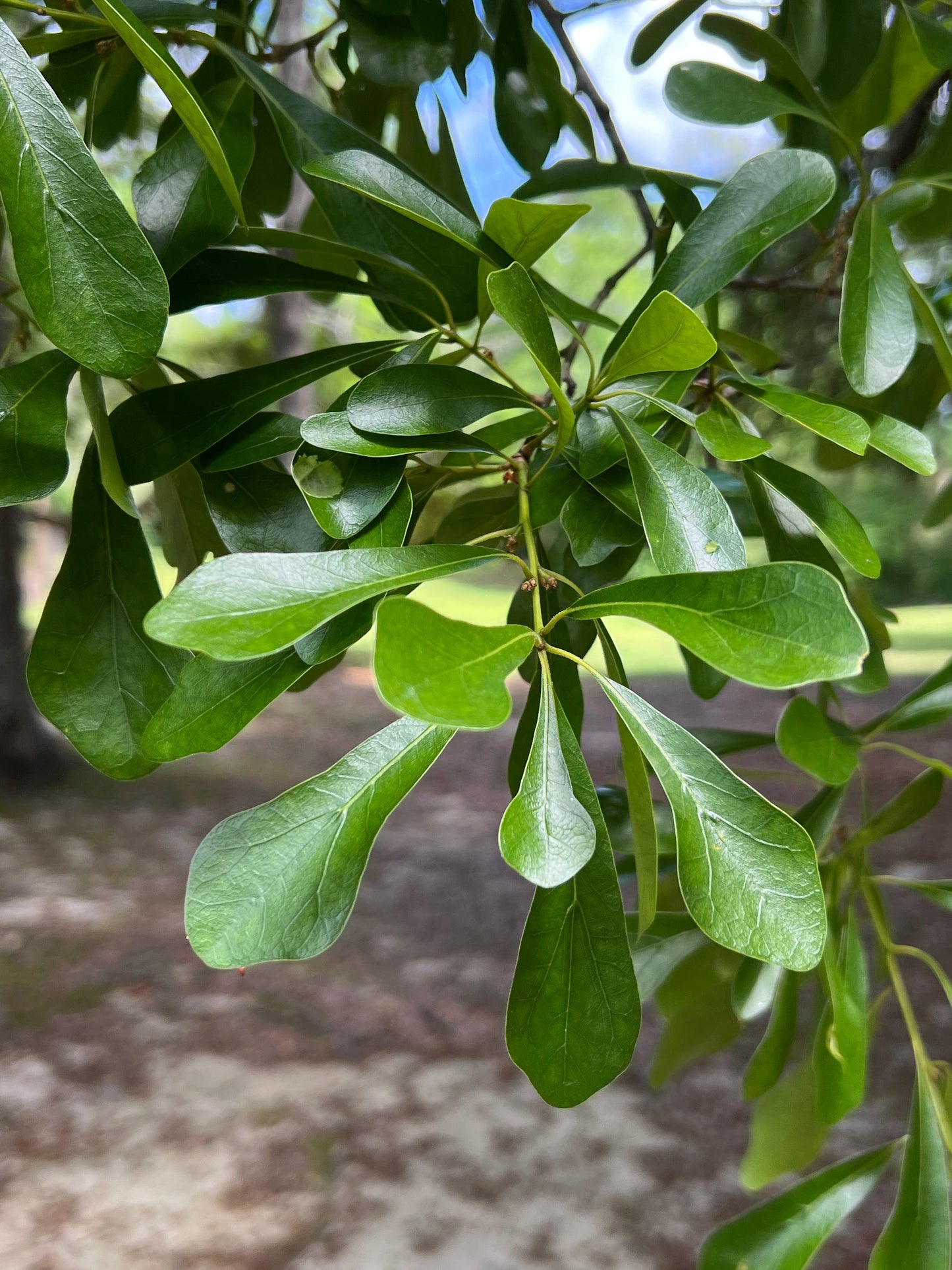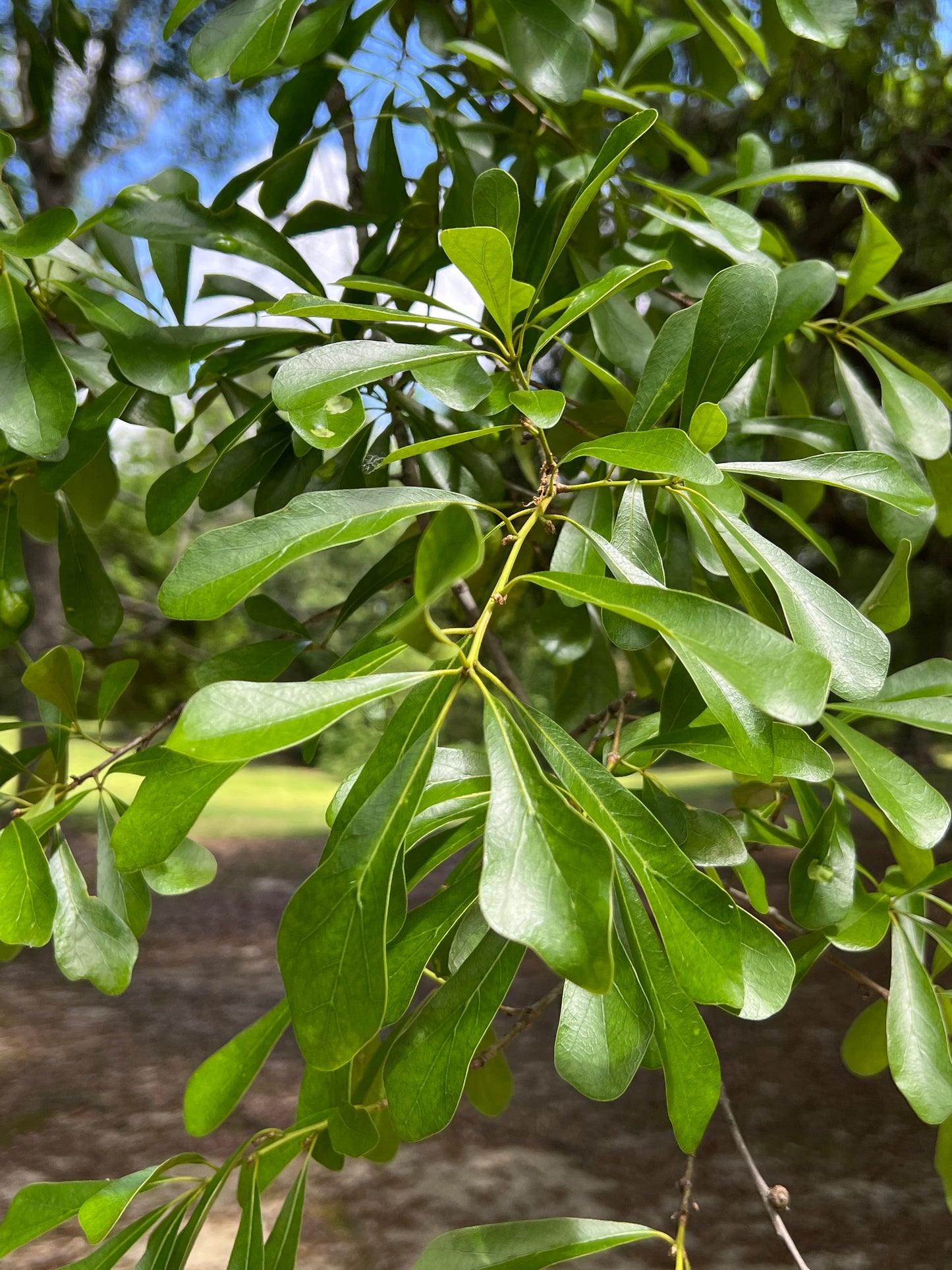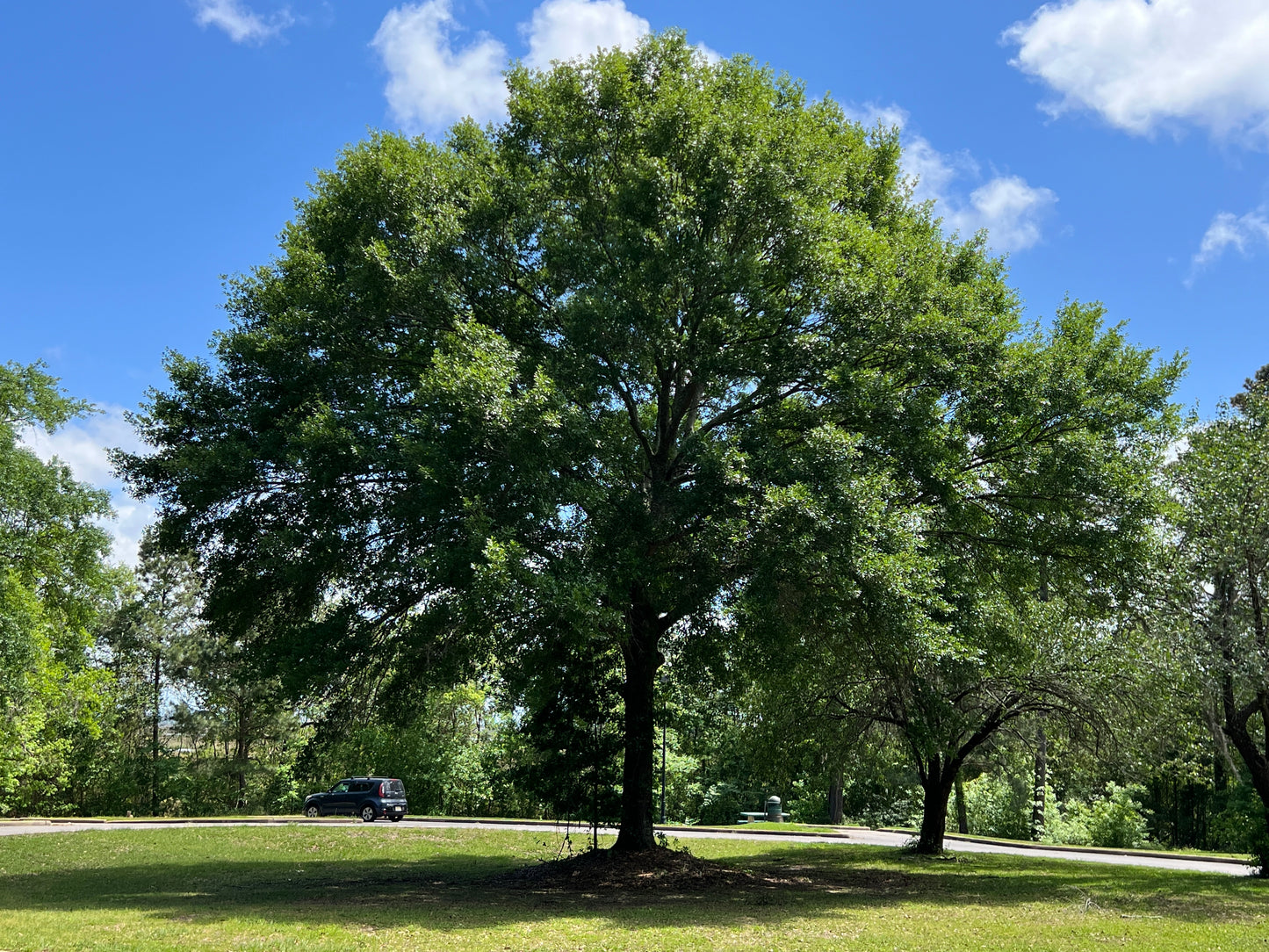Floridaseeds
Water Oak Quercus nigra 20 Seeds
Water Oak Quercus nigra 20 Seeds
Couldn't load pickup availability
Quercus nigra, commonly known as the water oak, is a medium to large deciduous tree native to the southeastern United States. Here are some key characteristics and descriptions:
General Description
Size: Typically grows to a height of 50-80 feet, but can reach up to 100 feet under optimal conditions.
Trunk: Usually straight, with a diameter of 1-3 feet.
Crown: Spreads out into a broad, rounded canopy, providing ample shade.
Bark
Texture: Smooth when young, becoming rougher and ridged with age.
Color: Grayish-brown to dark brown.
Leaves
Shape: Variable, but generally spatulate (spoon-shaped) with a broader rounded end and a narrower base. Some leaves may have three lobes near the tips.
Size: 2-4 inches long and 1-2 inches wide.
Color: Dark green on top, paler underneath.
Arrangement: Alternate.
Flowers
Type: Monoecious (both male and female flowers on the same tree).
Male Flowers: Yellowish catkins, appearing in spring.
Female Flowers: Small, reddish spikes in leaf axils.
Fruit
Type: Acorns.
Shape: Nearly spherical, about 1/2 inch in diameter.
Cap: Shallow, covering about one-third of the acorn.
Maturity: Takes two seasons to mature, usually ripening in fall.
Habitat
Preference: Prefers wet, bottomland soils but is adaptable to a variety of soil conditions, including dry and compacted soils.
Range: Found primarily in the southeastern United States, from New Jersey to Florida, and west to Texas and Oklahoma.
Ecological Role
Wildlife: Provides food and habitat for various wildlife species. Acorns are consumed by birds, squirrels, and other mammals.
Conservation: Helps in soil stabilization and water quality improvement in wetland areas.
Uses
Landscaping: Popular as a shade tree in urban and suburban settings due to its rapid growth and adaptability.
Wood: Occasionally used for lumber and fuel, though not as valuable as some other oak species.
Growing Instructions for the Water Oak
The seeds have only a mild dormancy and can be planted without a stratification period. 1. Put a mixture of potting soil and sand, perlite or vermiculite in a pot. Use pots with a drainage hole in the base. 2. Sow the seeds on the soil. 3. Cover the seeds with a thin layer of soil. 4. Water the seeds. Keep the soil moist but not wet. 5. When the seedlings are a few inches tall, they can be transplanted.










